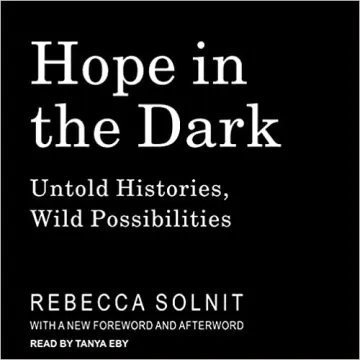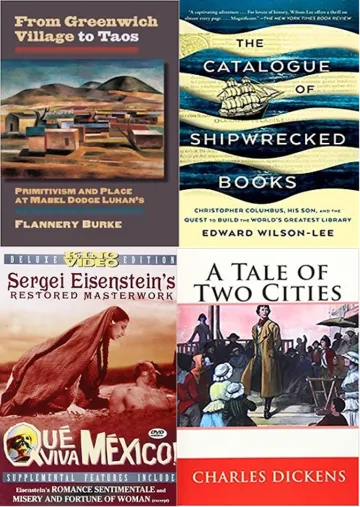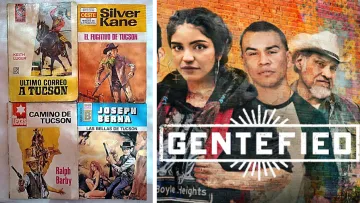Finished my Zooms for today, now what?
Hours of meetings, classes and office hours in Zoom or Skype are leaving you visually exhausted and mentally depleted, mostly because of the awkwardness inherent to these digital formats. The neglect of some basic personal hygiene habits, the unruly snacking/drinking, and the high maintenance of some people in the household just keep dragging your intellectual and personal standards to historic lows. But, you know that you are better than that and, more importantly, you know you are probably lucky compared to the rest of the inhabitants of this troubled world.
So, we want to help you put things in perspective by sharing some ideas that will keep you entertained but challenged. Stuff you can read, listen to or watch in your underwear and still feel like a rigorous professor, researcher or student. These are the things the people at the Southwest Center are consuming these days and want to recommend to you:

Jeff Banister is a long-time admirer of Rebecca Solnit, the passionate historian and activist who, among other things, gave meaning to the term mansplaining. Jeff is currently reading Hope in the Dark, originally published in 2004 but coming to the rescue in 2020 with a load of much needed rational optimism.
Jennifer Jenkins is currently tackling Ahdaf Soueif's The Map of Love as part of her academic adviser duties, and discovering at the same time the literary merits that made it finalist of the Booker prize at the beginning of this century. Then, as part of the larger purpose of reading all of Dickens, Jennifer is also working on A Tale of Two Cities. You can't find optimism in Dickens, but perhaps after such intense fictional drama reality doesn't look so bad.

To fulfill her broader areas of academic curiosity --Native American peoples, the Southwest, Mexico, Film, among many others-- Dr. Jenkins plans to take on Flannery Burke's From Greenwich Village to Taos, a thoroughly researched portrait of some of the pioneers who left the cosmopolis of the East for the bohemian, primitive New Mexico of the turn of the twentieth century. Meticulously researched is also The Catalogue of Shipwrecked Books, the fascinating story of the massive library compiled by Christopher Columbus' son, Hernando. As an audiovisual complement to all of the above, Dr. Jenkins is revisiting Eisenstein's epic Que Viva México. If you loved Roma... well, this is a totally different thing --no bourgeois guilt or hyper-cute camera angles-- but it´s black and white too and you also understand Mexico a little bit better after watching it.

Carlos Quintero is rediscovering the print left by his native Spain in the Southwest. First in his long list of readings about the topic is Entrada, by UofA and Southwest Center's dearest Bernard Bunny Fontana. He also spotted in the archives of the Journal of the Southwest --Arizona and the West in 1964-- this charming article about Spain´s fascination with the image of the American West, which gave birth to a mega-prolific pulp fiction genre of its own. He rescued dozens of those little novellas from collectors sites and has realized they are a great way to escape reality. From Netflix, he recommends Gentefied, a warm and amiable look at LA's gentrification process in Latino neighborhoods but with its decent dose of social critique.

